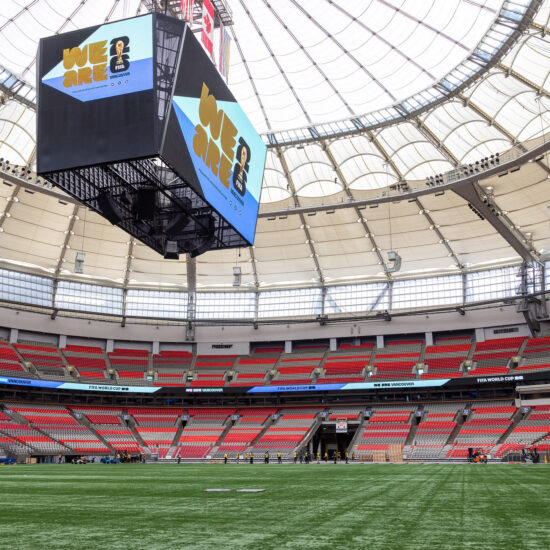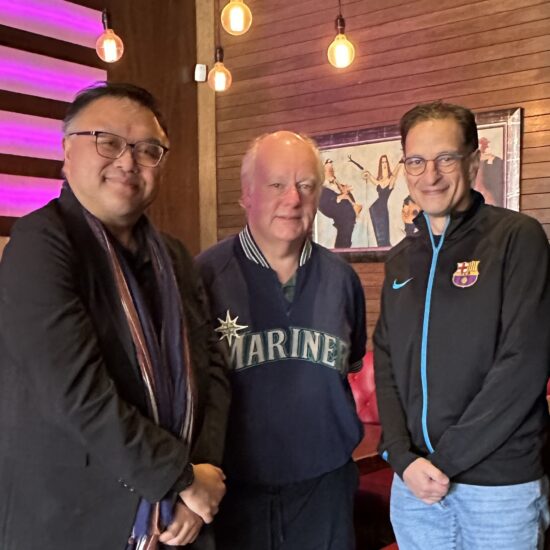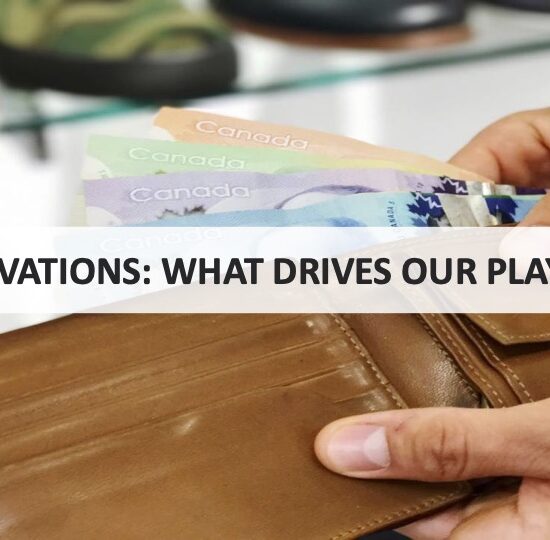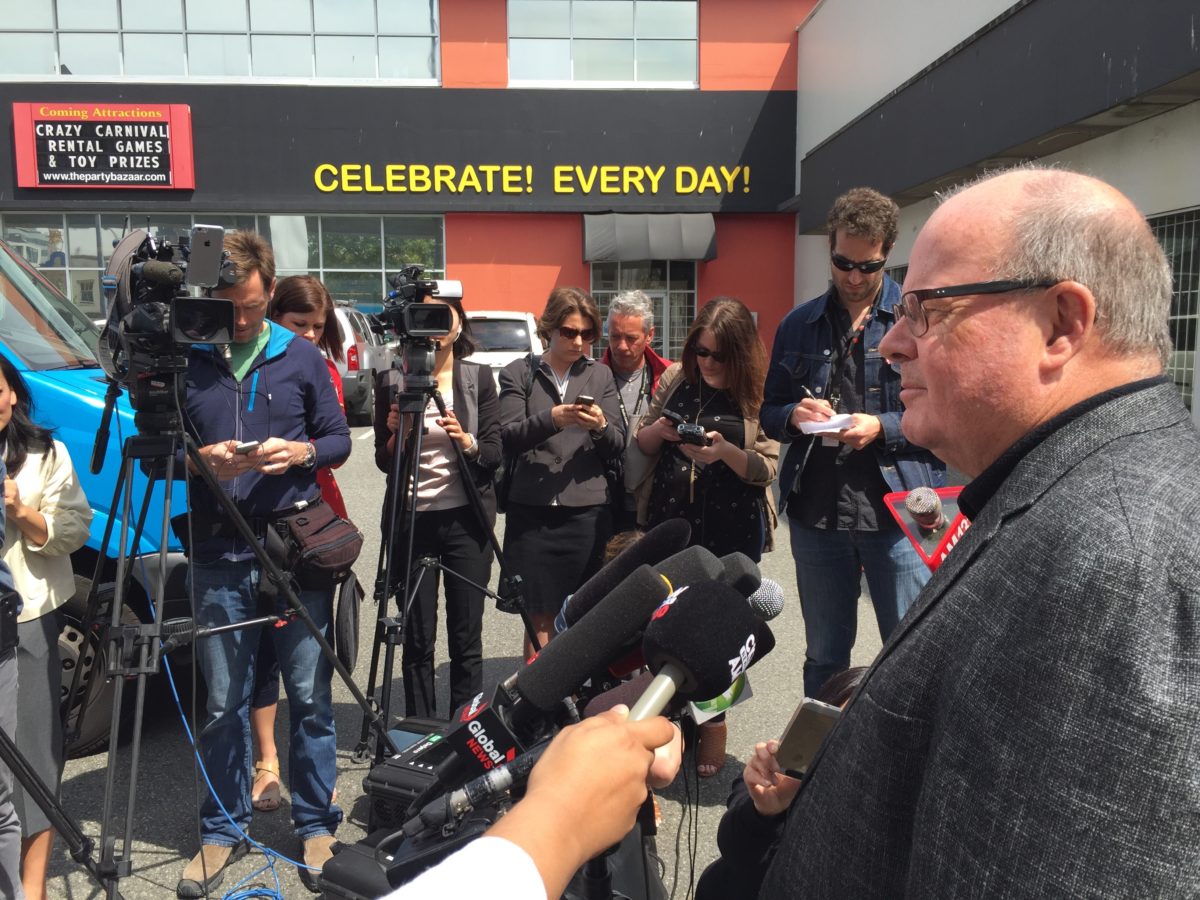
Bob Mackin
TransLink is spending $2.31 million for a committee to explore spending hundreds of millions of dollars to tax motorists who drive in downtown Vancouver and cross the region’s bridges.
So-called mobility pricing is how the Mayors’ Council wants to fund the regional share of the 10-year plan for roads, bridges and the Broadway subway and Surrey light rail. The latter two megaprojects will cost more than $4.6 billion combined, but the 2017 cost estimates are a tightly held TransLink secret, for fear of sparking sticker shock among taxpayers.
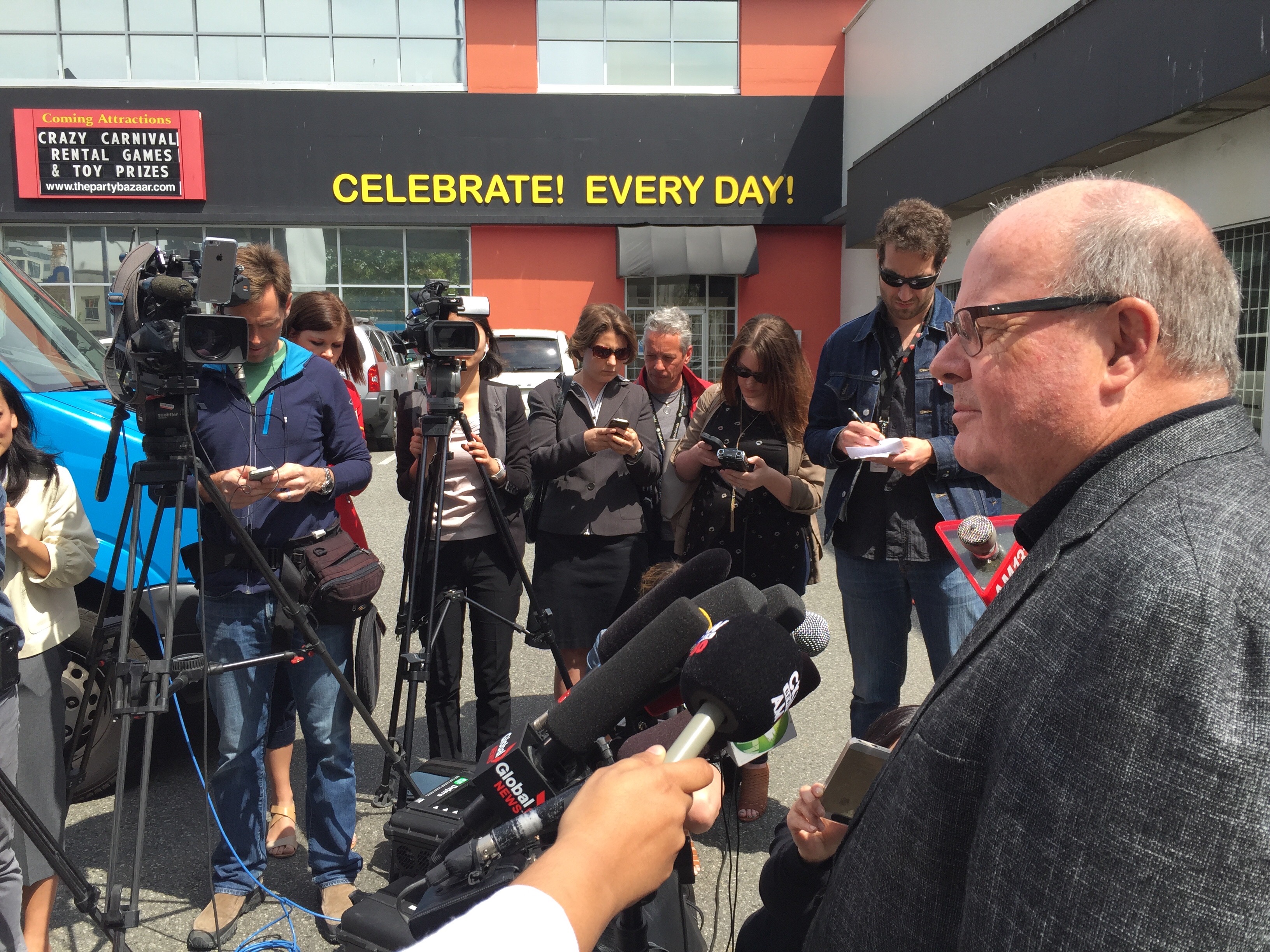
TransLink’s 2015 interim CEO Doug Allen (Mackin)
When interim CEO Doug Allen’s $35,000-a-month contract expired in August 2015, his exit report said TransLink should strike a committee and study the tax measure for two years, then take until 2025 to design and implement the measure. But this new committee is supposed to report and dissolve by the end of April 2018.
Almost three years ago, Allen warned that it would be a political minefield.
“Road usage charging can only be used to increase transit ridership [not fund roads and bridges] if it ever gets implemented in the first place,” Allen wrote in his advice to his successor. “Risks and challenges to implementation are numerous on both the technical and the public acceptability fronts — several orders of magnitude more complex than the Compass Card project.”
The Compass Card faregates and smart card project took an extra three years and doubled in budget to $200 million by the time it was launched in 2016. The road tax would require installation of networked surveillance cameras and sensors throughout the city, like in Milan, San Diego, Singapore, Stockholm and London. It cost the British capital $831 million to start-up and operate its congestion pricing system over the first decade, in order to net $1.3 billion net revenue.
Will anyone on the 14-member committee travel to see how it works, first hand?
“At present there are no plans for the commission to travel outside of the region as part of their work,” said TransLink spokeswoman Jill Drews.
“At present” could be the operative phrase. TransLink is notorious for junkets. Back in November 1999, chair George Puil led a 10-person, $70,000 delegation to London to explore the turnstiles on the tube. Puil’s travel buddies included: NDP MLA Jenny Kwan and her aide Ian McConnell, Millennium Line president Lecia Stewart, TransLink vice-president Sherri Plewes, ex-BC Transit boss Larry Miller, and transit consultant Jane Bird.
They enjoyed business class airfare and stayed in a $300 hotel room in the posh Mayfair district.
Mobility pricing committee chair Allan Seckel, who was Premier Gordon Campbell’s deputy minister during the 2010 Winter Olympics, and vice-chair Joy MacPhail, the former NDP leader, are being paid $2,500 and $1,666 respectively, per month. All members of the board — including directors like ex-NPA Coun. Jennifer Clarke, ex-B.C. trucking industry lobbyist Paul Landry, and United Way CEO Michael McKnight — will be paid a $550-per meeting stipend.
The board reads like a reunion of the Better Transit and Transportation Coalition, which lost the 2015 TransLink tax plebiscite: Greater Vancouver Board of Trade’s Iain Black, UNIFOR’s Gavin McGarrigle, Surrey Business Improvement Association’s Elizabeth Model and Counterpoint Communications’ Bruce Rozenhart. Rozenhart was in the backroom for Liberal incumbent John Yap’s re-election in Richmond-Steveston.







